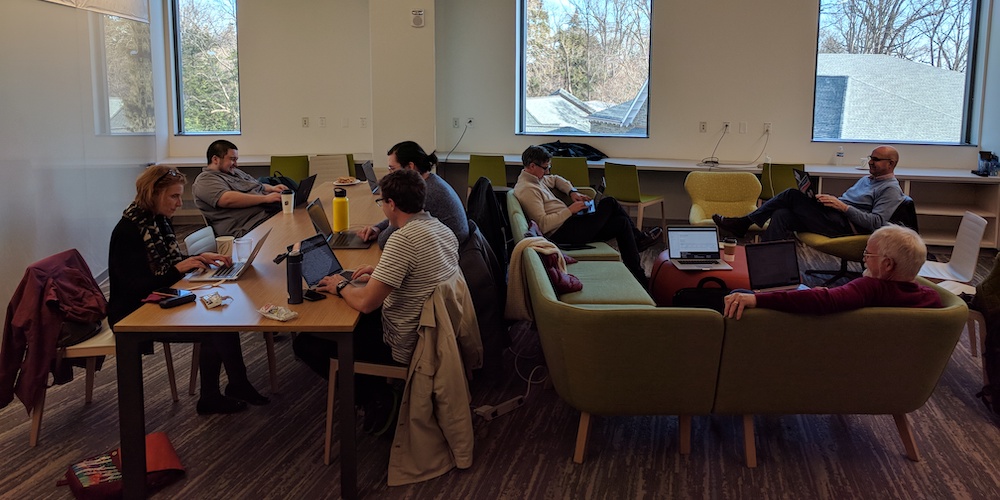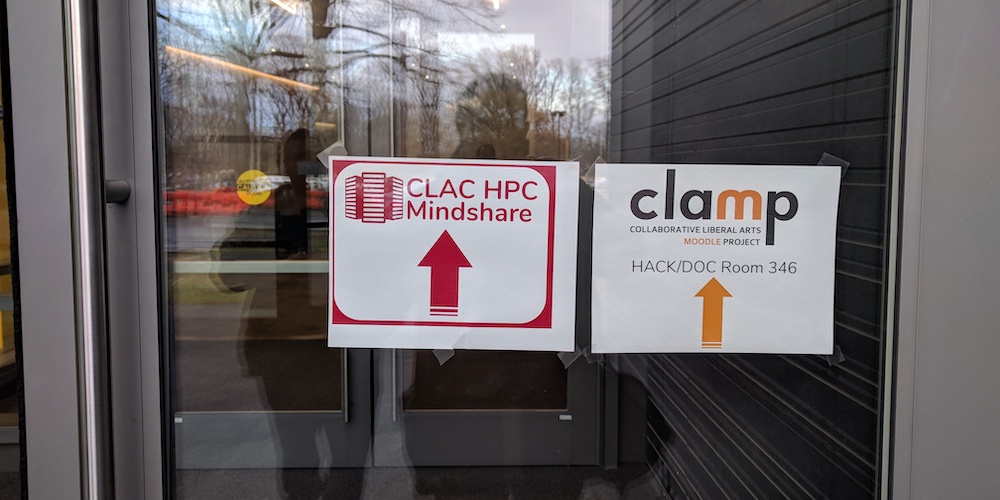
Day 3 of the Winter 2021 Moodle Hack/Doc Fest ended quietly as several attendees lost their on-going battles with “on-campus” meetings. Nevertheless, we finished the task list and made good progress in several areas.
H5P
We spent considerable time going over the state of H5P integration in Moodle. As of Moodle 3.9, Moodle has a core integration with H5P. The H5P project, for its part, continues to package a plugin and recommends that people use the plugin instead of the core integration. The differences revolve around authoring H5P content and adding it to Moodle.
H5P core integration
The core integration adds three pieces to Moodle: a “content bank”, where users may author content, the content bank repository for distributing that content, and the actual H5P activity module for delivering that content to students. There are site- and course-level content banks. You may upload H5P content there, and it offers a subset of H5P content types for authoring. What it does not offer is integration with the H5P Hub. In addition, the downloaded H5P items count against the user’s private files storage limit.
H5P plugin
In contrast to the core integration, the plugin does not interact with the content bank nor the content bank repository. Content authoring is done in the actual activity module, and you may also obtain content directly from H5P Hub. The H5P plugin plans to start offering OER resources from the hub as well.
Recommendations
CLAMP does not recommend one option over the other, but we do recommend that you make a choice. If you were using the plugin and want to use the core integration instead, then you should disable the plugin but keep it installed for backup compatibility. If you want to continue using the plugin in preference to the core integration, then you will want to disable both the core activity module (labeled H5P as opposed to “Interactive content”) and the Content bank repository. There is a tool for migrating from the plugin to the core integration, but we did not have an opportunity to evaluate it: https://moodle.org/plugins/tool_migratehvp2h5p.
Roster and name pronunciation
An idea from the Swarthmore Hack/Doc last January was incorporating name pronunciation into the Roster Report via a custom profile field. That functionality is now in beta, and Lafayette hopes to include it in the January LAE release.
Filtered Course List and the mobile app
After some testing and evaluation, we decided that CLAMP could not fully support the proposed changes to support the Filtered Course List in the Moodle Mobile App. What we will do is leave some hooks in place so that the original developer of the feature can more easily support it a future fork of the plugin.
Legacy course files
Finally, we took a look at how well-supported Legacy course files are these days. Legacy course files are a legacy of the Moodle 1.9 era, and old courses that originated in a Moodle 1.9 instance and have been carried forward may still have them.
Legacy Course Files can be enabled by the Site Administrator. Even if it is not enabled, you can restore a course from another Moodle server that has Legacy Course Files enabled, and those files will show up in a restored course.
When you copy a course (using the new Course Copy feature), Legacy Course Files are also copied into the new course with new file URLs. Even a quiz with a link to a file in the Legacy Course Files area will copy correctly into the new course.
Files in the Legacy Course Files area do not download when you click on the “Download course content” link. However, if you add one of those files to the course, it is created as a new resource, and it does download with the rest of the course content.
What’s next
That’s a wrap for CLAMP’s first online Hack/Doc Fest! All in all, attendees were pleased with how the gather.town platform functioned and with the structure of the event. CLAMP is planning to host the Summer 2021 Hack/Doc Fest online as well, so watch this space and the CLAMP Moodle Exchange for additional information.
Winter 2021 Hack/Doc Fest: Event page | Day 1 | Day 2 | Day 3


